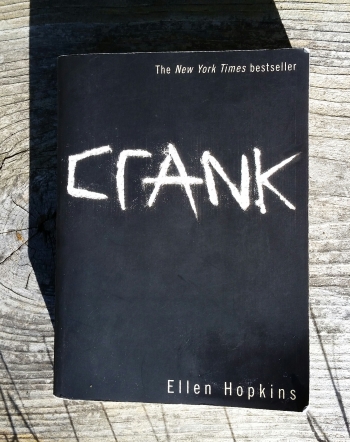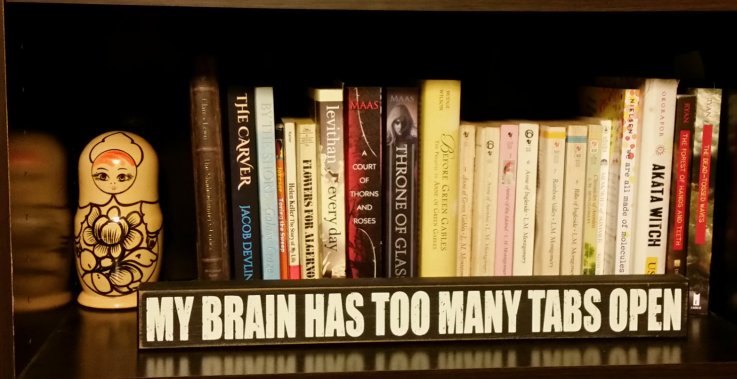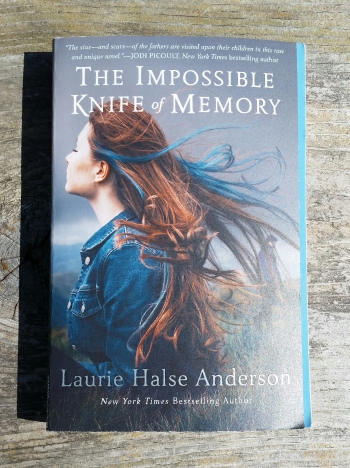 (Photo by Carla Rennick)
(Photo by Carla Rennick)
Summary (from goodreads.com): In Crank, Ellen Hopkins chronicles the turbulent and often disturbing relationship between Kristina, a character based on her own daughter, and the “monster,” the highly addictive drug crystal meth, or “crank.”
I am going to start by saying: this wasn’t as hard to get through as I thought it would be. I have a friend who is a big fan of Ellen Hopkins, and she warned me that none of the books in this series could exactly be called “happy.” I actually ended up finishing it in a single day–partly because I was on a deadline for school, and partly because each poem had me eager to read the next one. This is only the second novel in verse that I have read (the first was Brown Girl Dreaming by Jacqueline Woodson), but I think it was really well done. I do have a lot of experience in reading poetry (I was an English lit major in undergrad), and I found Hopkins’s writing to be artful without sacrificing directness. She uses metaphor and other figurative language to enhance the experience of the reader, but she doesn’t hide behind these techniques to avoid brutal truths.
Hopkins also uses structure to great effect. One of my favorite things about this book is that the “title” of each poem is also usually the opening line. This basically prevents the reader from simply skimming over the titles while also helping to maintain the flow of the overall book. Hopkins also toys with the arrangement of the stanzas and lines on the page, allowing her words to convey multiple meanings simultaneously. I will say that the compact size of the book means that some of the poems are interrupted in inopportune places. This is especially unfortunate when the “shape” of the poem is relevant to its message. The reader has to sort of “cut and paste” it back together in their head in order to visualize the completed form.
With regard to characterization, I though the duality of Kristina/Bree was a very interesting approach. I have to admit that she (Hopkins or the protagonist, however you want to look at it) got me with the fifth poem (“More on Bree”). I was halfway to my psychoanalysis when she shut me right up. Bree, who is Kristina’s expression of her wilder side, did seem a bit extreme to me, but I suppose that is because my own wild side has never involved anything more exciting than that time I smoked cigarettes for like a week. So I had a little trouble relating to Bree, but I think everyone can understand that itch to let go of your inhibitions. I also deeply respect Hopkins’s portrayal of addiction and the domino effect it can have. She made me see Kristina as a very sympathetic character even while I thanked my stars that I have never found myself in her position.
Finally, although I really liked the direction Hopkins took the conclusion of the novel, it felt quite rushed to me. I would have liked to see at least one detailed instance of Kristina’s relapses so that the ending didn’t feel so much like an abrupt shift to a wrap-up montage.
Favorite line: “I could always say ‘no.’ / Couldn’t I?”
Rating: 4.5/5

